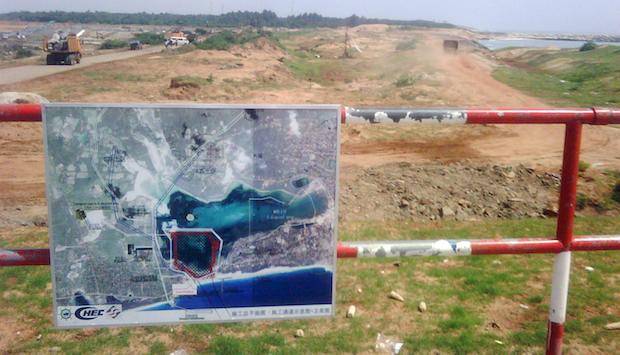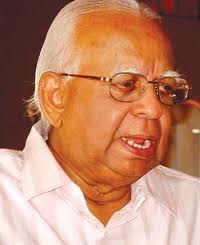 24 March 2012- Global Tamil Forum (GTF) commends the passing of the UN resolution on Sri Lanka, at the current Human Rights Council (HRC) session in Geneva, as a crucial first step towards accountability and justice for victims on the island. Tamils all over the world are thankful to the United States for spearheading the initiative and to all those who have made this first meaningful step possible. We are most encouraged by India for having made a significant vote in favour of addressing human rights abuses and the importance that accountability plays in facilitating just peace. In addition to the lobbying efforts of the Tamil Diaspora, Tamils in Tamil Nadu and Malaysia, many international parliamentarians, media organisations, non-government bodies and some progressive human rights activists from the South of Sri Lanka have all contributed towards the success of this Resolution. GTF encourages all Tamil political parties in Sri Lanka to convey to the Tamil population the significance of this passing of the resolution as a constructive move towards accountability and sustainable reconciliation.
24 March 2012- Global Tamil Forum (GTF) commends the passing of the UN resolution on Sri Lanka, at the current Human Rights Council (HRC) session in Geneva, as a crucial first step towards accountability and justice for victims on the island. Tamils all over the world are thankful to the United States for spearheading the initiative and to all those who have made this first meaningful step possible. We are most encouraged by India for having made a significant vote in favour of addressing human rights abuses and the importance that accountability plays in facilitating just peace. In addition to the lobbying efforts of the Tamil Diaspora, Tamils in Tamil Nadu and Malaysia, many international parliamentarians, media organisations, non-government bodies and some progressive human rights activists from the South of Sri Lanka have all contributed towards the success of this Resolution. GTF encourages all Tamil political parties in Sri Lanka to convey to the Tamil population the significance of this passing of the resolution as a constructive move towards accountability and sustainable reconciliation.
 Mar 23, 2012 – Since India’s vote supporting the resolution against Sri Lanka at the UN Human Rights Council (UNHRC) that called for promotion of reconciliation and accountability for alleged violations of International law, the predominant Delhi-centric analyses have been that India has committed an awful blunder. The most common arguments that emerged from the conventional geo-political logic, that completely failed to see the political and public sentiments in Tamil Nadu, as well as the overwhelming evidence of alleged war crimes and human rights violations in Sri Lanka, centred around the following: India has voted against a traditional ally-neighbour and it’s a strategic blunder vis-a-vis China and Pakistan. The chatter also highlighted that the entire Asian block voted in favour while India sided with the West, and that it will further stoke Sinhala nationalism and marginalisation of Tamils. It wasn’t surprising that most of them, except a few like Kamal Mitra Chinoy, Brahma Chellany and Manoj Joshi, spoke about the issue in the same breath as they speak about Pakistan.
Mar 23, 2012 – Since India’s vote supporting the resolution against Sri Lanka at the UN Human Rights Council (UNHRC) that called for promotion of reconciliation and accountability for alleged violations of International law, the predominant Delhi-centric analyses have been that India has committed an awful blunder. The most common arguments that emerged from the conventional geo-political logic, that completely failed to see the political and public sentiments in Tamil Nadu, as well as the overwhelming evidence of alleged war crimes and human rights violations in Sri Lanka, centred around the following: India has voted against a traditional ally-neighbour and it’s a strategic blunder vis-a-vis China and Pakistan. The chatter also highlighted that the entire Asian block voted in favour while India sided with the West, and that it will further stoke Sinhala nationalism and marginalisation of Tamils. It wasn’t surprising that most of them, except a few like Kamal Mitra Chinoy, Brahma Chellany and Manoj Joshi, spoke about the issue in the same breath as they speak about Pakistan.
– ஐக்கிய நாடுகள் சபையின் மனித உரிமைப் பேரவையில் அங்கத்துவம் வகிக்கும் 47 நாடுகளின் பிரதிநிதிகளுக்கும் தமிழ் தேசிய கூட்டமைப்பின் தலைவர் இரா. சம்பந்தன் அவர்கள் கடந்த 14ம் திகதி அனுப்பிய அறிக்கையின் தமிழாக்கம். 14 மார்ச்சு 2012 –
 ஐக்கிய நாடுகள் சபையின் மனித உரிமைகள் பேரவையின் 19ஆவது கூட்டத்தொடரில் இலங்கை அரசாங்கத்தின் நிலைப்பாட்டிற்கான ததேகூ இன் பதில்
ஐக்கிய நாடுகள் சபையின் மனித உரிமைகள் பேரவையின் 19ஆவது கூட்டத்தொடரில் இலங்கை அரசாங்கத்தின் நிலைப்பாட்டிற்கான ததேகூ இன் பதில்
1. உண்மையைக் கூறுவது மற்றும் தனது வாக்குறுதிகளை நிறைவேற்றுவது தொடர்பாக இலங்கை அரசாஙகத்துக்கு தீவிரப் பிரச்சனைகள் உள்ளன
1.1 2011 செப்டெம்பர் 12ஆம் திகதி ஐக்கிய நாடுகள் சபையின் மனித உரிமைகள் பேரவையின் (ஐநாமஉபே) 18 ஆவது கூட்டத்தொடரில் அமைச்சர் மகிந்தா சமரசிங்கா ஆற்றிய உரையை அடுத்து,அந்த உரையின் தவறுகளைத் திருத்தியும்;; “இலங்கையின் நிலவரத்தை அனைத்துலகச் சமூகத்திற்கு எடுத்துரைக்கும்போது நேர்மையாகவும் உண்மையாகவும”; இருக்குமாறு இலங்கை அரசாங்கத்தை வலியுறுத்தியும் அதற்கடுத்த நாளே தமிழ்த் தேசியக் கூட்டமைப்பு (ததேகூ) ஓர் அறிக்கையை வெளியிட்டது. துரதிஸ்டவசமாக, தற்போது நடைபெறும் ஐநாமஉபே இன் 19ஆம் கூட்டத்தொடரிலும் அரசாங்கம் அனைத்துலகச் சமூகத்தைத் தொடர்ந்தும் ஏமாற்றுகிறது.


